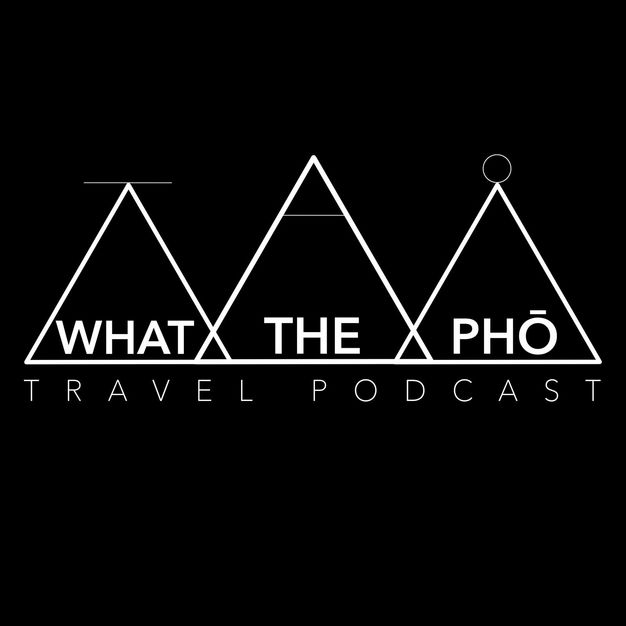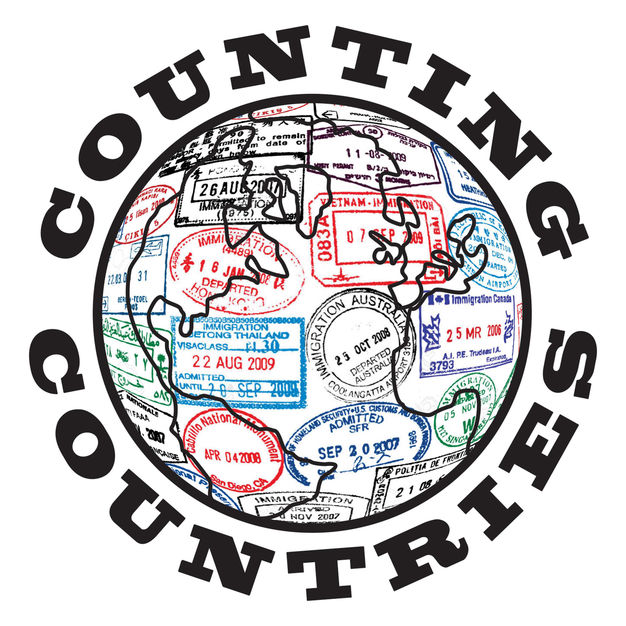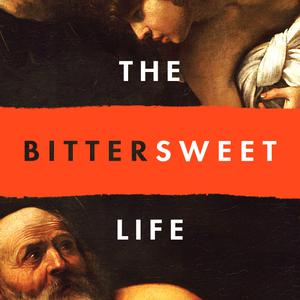
Far From Home
Scott Gurian
Award-winning radio journalist Scott Gurian documents unexpected adventures and chance encounters with interesting people around the world.
- 11 minutes 57 secondsChristmas in Puerto Rico Revisited
As we wrap up another year, I'm re-sharing an episode I originally released back at the end of 2020 about a holiday tradition I got to witness while I was visiting Puerto Rico. I often travel over Christmas and New Years, and I love seeing how people in other places have cultural practices that are different from my own. This was one of those experiences. My friend Rob took me to a parranda, which is sort of like a Puerto Rican version of Christmas caroling. But as you’ll hear, this particular parranda had an interesting twist.
On Far From Home, award-winning public radio journalist Scott Gurian reports fascinating stories from faraway places like Iran, Chernobyl, and Mongolia. For more info, visit farfromhomepodcast.org
23 December 2024, 4:37 am - 25 minutes 39 secondsWorld Reacts to Trump
As I spent time abroad over the past few months in the lead-up to the American presidential election, I was struck by how often news and politics from back home seemed to be on the minds of all the locals I met. It’s like no matter how far away I went, it was impossible to escape! On this episode I reflect on how important what happens in the United States is to people the rest of the world, and we hear from people in Poland, Haiti, Lebanon, Iran, India, Afghanistan, Puerto Rico, and Uganda about what the election of Donald Trump means to them.
If you want to learn more about the work of Frank Mugisha’s organization, visit the webpage of Sexual Minorities Uganda. And be sure to check out The Europeans, the weekly podcast that Wojciech Oleksiak from Poland helps produce. It’s a great way to keep informed on all the important news happening around the European continent, and I always have the latest episode in my personal podcast queue.
(Thanks to Kevin MacLeod for his track Desert City, which was used under a Creative Commons Attribution 4.0 license.)
On Far From Home, award-winning public radio journalist Scott Gurian reports fascinating stories from far-flung places like Iran, Chernobyl, and Mongolia. For more info, visit farfromhomepodcast.org
12 December 2024, 6:45 am - 27 minutes 13 secondsWinging It
I'm still working on my next episode, where I'm asking listeners around the world to send me short voice memo recordings from their phones, talking about how people where they live have reacted to the recent American election results and how they think a second Trump presidency would impact ordinary folks in their country. If you have any thoughts or observations you'd like to share, please email me at [email protected].
In the meantime, I know a lot of new listeners have joined me for this 4th season of Far From Home, so I'm popping into your feed to introduce myself and share a little about my background and how I got to where I am today.
On this episode, I'm featuring an excerpt of an interview James Hammond conducted with me a few months ago for his “Winging It Travel Podcast.” It was a really great conversation, and we delved into some interesting topics that I haven't discussed on Far From Home in the past, so I wanted to share it with all of you.
You can visit Winging It's website to read a nice article James wrote about me and listen to the rest of our conversation, or simply search for Winging It Travel Podcast in whatever podcast app you use (note that this interview originally ran back in May, 2024)
On Far From Home, award-winning public radio journalist Scott Gurian reports fascinating stories from far-flung places like Iran, Chernobyl, and Mongolia. For more info, visit farfromhomepodcast.org
19 November 2024, 11:48 pm - 28 minutes 34 secondsCanadian Cuisine
If you travel around Canada, you’ll find lots of regional dishes, but there isn’t really a strong national culinary identity the way there is in Italy or Mexico, for example. So I embarked on a quest to figure out how exactly to define "Canadian cuisine" beyond the stereotypical maple syrup, poutine, and butter tarts. The answer turned out to be much more interesting than I ever could have imagined!
A version of this piece originally ran on Here and There, a Canadian Geographic travel podcast. Thanks to Liz Beatty and Black Cabin Studios for permission to share this story with the Far From Home audience. Canadian listeners might also appreciate my documentary reexamining the legacy of the Tom Thomson and the Group of Seven painters.
On Far From Home, award-winning public radio journalist Scott Gurian reports fascinating stories from far-flung places like Iran, Chernobyl, and Mongolia. For more info, visit farfromhomepodcast.org29 October 2024, 11:00 am - 22 minutes 53 secondsChristiania bonus episode
In the course of reporting my documentary about Freetown Christiania -- Copenhagen's famous anarchist commune -- for the 99% Invisible podcast, I took two trips to Denmark and recorded many hours of interviews that unfortunately ended up on the cutting room floor. In this bonus episode of Far From Home, I present some of the highlights as well as some additional context and backstories of the people I interviewed. [N.B.: This episode contains some explicit language.]
If you enjoy this podcast, please post about it on social media and tag @farfromhomepodcast (on Instagram or Facebook), and also consider texting or emailing a friend!
On Far From Home, award-winning public radio journalist Scott Gurian documents fascinating stories from far-flung places like Iran, Chernobyl, and Mongolia. For more info, visit farfromhomepodcast.org8 October 2024, 11:33 am - 43 minutes 40 secondsFreetown Christiania
In 1971, a group of squatters took over an abandoned military base just across the harbor from downtown Copenhagen, Denmark. They created a politically autonomous anarchist zone -- in other words, a commune -- with its own flag, marching band, and consensus-driven governance process, and they decided to call their community Christiania. The thousand or so residents were free to do pretty much whatever they wanted as long as it didn't infringe upon the rights of other people. There were just a few rules: no private ownership of land or housing, no weapons or violence, and no vehicles. But as the years went on, Christiania faced a number of challenges, and now -- more than half a century later -- it's at a turning point where some people question how much longer it will be able to survive.
This first episode of Far From Home's 4th season was produced in collaboration with 99% Invisible. Thanks to my editor Joe Rosenberg and the rest of the 99pi team for their assistance. Be sure to listen to my companion bonus episode that I'm releasing simultaneously with this episode, containing more content about Christiania that I didn't have room to include in this documentary! Also, in case you missed it, check out the last story I produced for them a few years ago about the peace walls separating Protestant Unionists and Catholic Nationalists in Northern Ireland.
On Far From Home, award-winning public radio journalist Scott Gurian documents fascinating stories from far-flung places like Iran, Chernobyl, and Mongolia. For more info, visit farfromhomepodcast.org
8 October 2024, 11:32 am - 1 minute 48 secondsSeason 4 Trailer
In this era of wars, conflicts, and polarized politics, talking to strangers has never been more important. A new season of episodes launches Tuesday, October 8th.
(Thanks to Ali Lemer for editorial support)
On Far From Home, award-winning public radio journalist Scott Gurian documents fascinating stories from far-flung places like Iran, Chernobyl, and Mongolia. For more info, visit farfromhomepodcast.org
1 October 2024, 12:48 pm - 21 minutes 14 secondsEclipse Chaser
After missing the opportunity to see the last total solar eclipse in the United States back in 2017, I decided to add this experience to my bucket list and vowed I would do whatever it takes to see an eclipse in the future. A few weeks ago, I got my chance. Joined by my brother Drew and his friends Jeremy and Claire, I drove up to the woods of northern New Hampshire, and together, the four of us witnessed an event that far surpassed whatever expectations any of us had had. Here’s an audio postcard from our trip.
Visit my website at farfromhomepodcast.org to view more photos and videos!
On Far From Home, award-winning public radio journalist Scott Gurian documents fascinating stories from far-flung places like Iran, Chernobyl, and Mongolia. For more info, visit farfromhomepodcast.org
21 April 2024, 11:30 pm - 49 minutes 9 secondsEvery Country Without Flying
Thor Pedersen always felt like he was born too late. He grew up in a world where other people had already done most of the amazing things, like venturing to the North and South Poles, climbing the highest mountains, following the longest rivers, and exploring the depths of the deepest seas. But in 2013, at the age of 34, he discovered one record that no one had yet managed to achieve. So he went to the store, bought a map, and began marking it with a blue pen and a red pen. Before long, he hatched a plan to make history and get his name “on page 506 in some little book,” as he saw it: he would travel to every country in the world without flying, in a single, unbroken journey.
On this episode of Far From Home, he tells the story of that journey and how it turned out to be way longer and more difficult than he ever imagined it would be.
Check out Thor’s blog, where he documented his entire, decade-long trip.
————-
On Far From Home, award-winning public radio journalist Scott Gurian documents fascinating stories from far-flung places like Iran, Chernobyl, and Mongolia. For more info, visit farfromhomepodcast.org
11 December 2023, 3:48 am - 8 minutes 15 secondsPrison Rodeo
After releasing my last episode where I shared stories from my time in Oklahoma many years ago, I came across one more short radio piece in my archives that I thought some of your might enjoy. It’s about another cultural phenomenon unique to Oklahoma that I experienced: the world’s only behind-the-walls prison rodeo. Before a stadium of 9000 cheering fans, a hundred inmates from around the state competed in events like calf roping, steer wrestling, a wild horse race, and “Money the Hard Way,” a competition where people tried to grab a $100 bill that was tied between the horns of a charging bull.
————-
On Far From Home, award-winning public radio journalist Scott Gurian documents fascinating stories from far-flung places like Iran, Chernobyl, and Mongolia. For more info, visit farfromhomepodcast.org
15 June 2023, 10:58 pm - 46 minutes 6 secondsStories From Flyover Country
Two decades ago, I was just starting out as a public radio reporter, applying for literally every radio job opening I saw, and somehow I ended up getting hired by a small station in Norman, Oklahoma. Given that the culture, politics, and geography were so incredibly different from anything I’d been exposed to up to that point. moving there from my home state of New Jersey almost felt like going to a foreign country. Yet despite any initial reservations I had, it turned out to be a really great experience, and the five years I spent there ended up making me a better journalist and a better person.
On this episode, I’m sharing a couple of my favorite radio stories I produced during my time in Oklahoma, to give you a small sense of the culture of this region that many Americans on the coasts simply regard as “flyover country.” First, I get to experience the traditional sport known as catfish noodling. Then I go on a rattlesnake hunt in southwestern Oklahoma.
————-
On Far From Home, award-winning public radio journalist Scott Gurian documents fascinating stories from far-flung places like Iran, Chernobyl, and Mongolia. For more info, visit farfromhomepodcast.org
27 May 2023, 5:09 am - More Episodes? Get the App
Your feedback is valuable to us. Should you encounter any bugs, glitches, lack of functionality or other problems, please email us on [email protected] or join Moon.FM Telegram Group where you can talk directly to the dev team who are happy to answer any queries.
 #RJKWORLDTOUR Podcast
#RJKWORLDTOUR Podcast
 What The Pho Travel Podcast
What The Pho Travel Podcast
 Counting Countries
Counting Countries
 Strangers Abroad
Strangers Abroad
 The Bittersweet Life
The Bittersweet Life